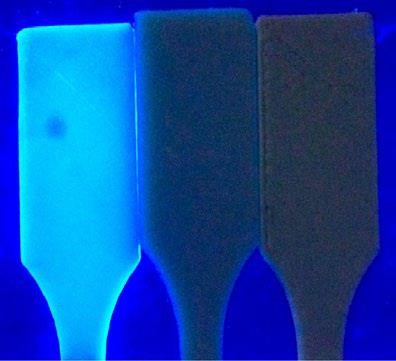Chemically active 3D printing awarded

US researchers have been recognised for their work demonstrating the chemical reactivity of nanocomposites in 3D-printed structures, last week receiving the STAM 2016 Altmetrics Award for their efforts.
3D printing was first invented in the 1980s as a process whereby 3D objects were produced by printing a sequence of cross-sectional layers. Since then, the practice has demonstrated potential in tissue engineering where structures have been seeded with living cells. However, in chemistry the technique has so far been confined to producing structures to help research other materials and structures — such as reactionware — rather than producing structures to be studied themselves.
“As a chemist, printed things are kind of boring,” said Matthew Hartings, a researcher at American University. “I wanted 3D-printed objects to be able to do chemistry after they were printed.”
Together with colleagues from American University, the US National Institute of Standards and Technology and the FDA, Hartings blended titanium oxide (TiO2) — which has enhanced photocatalytic properties in nanoparticle form — into the 3D-printed polymer acrylonitrile butadiene styrene (ABS). Writing in the journal Science and Technology of Advanced Materials (STAM), the researchers revealed that the TiO2 particles not only enhanced the mechanical properties of the structure but also the chemical properties. This is because, although embedded in a composite when 3D printed, the permeable polymer host allowed access between the TiO2 nanoparticles and other chemicals in the environment.
Since its publication in April 2016, the study attracted so many references in mainstream and social media that it was a natural pick for the journal’s 2016 Altmetrics Award. For Hartings, winning the award was a gratifying indication that his research was breaking out of academia and attracting interest from non-specialists.
Govt and industry fund health and biotech innovation in SEQ
The SEQ Innovation Economy Fund has awarded eight projects $94m in government funding, while...
Does the 2025–26 Budget do enough for science?
AAMRI has described the 2025–26 federal Budget as "very disappointing" for the...
Ming Long appointed Chair of CSIRO
Minister for Industry and Science Ed Husic has announced the appointment of Ming Long to the role...




